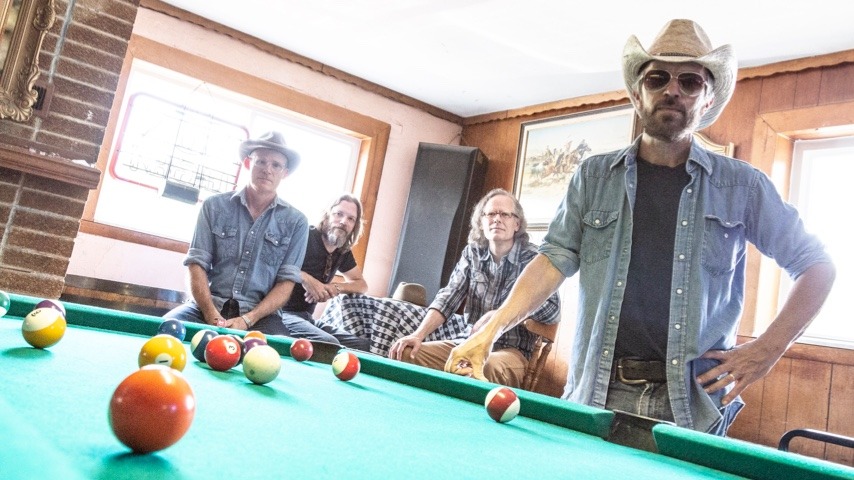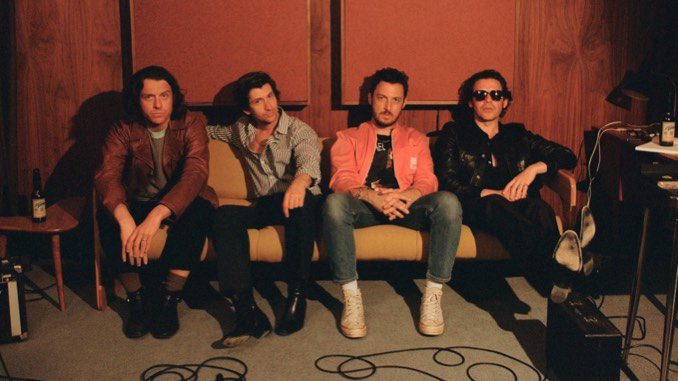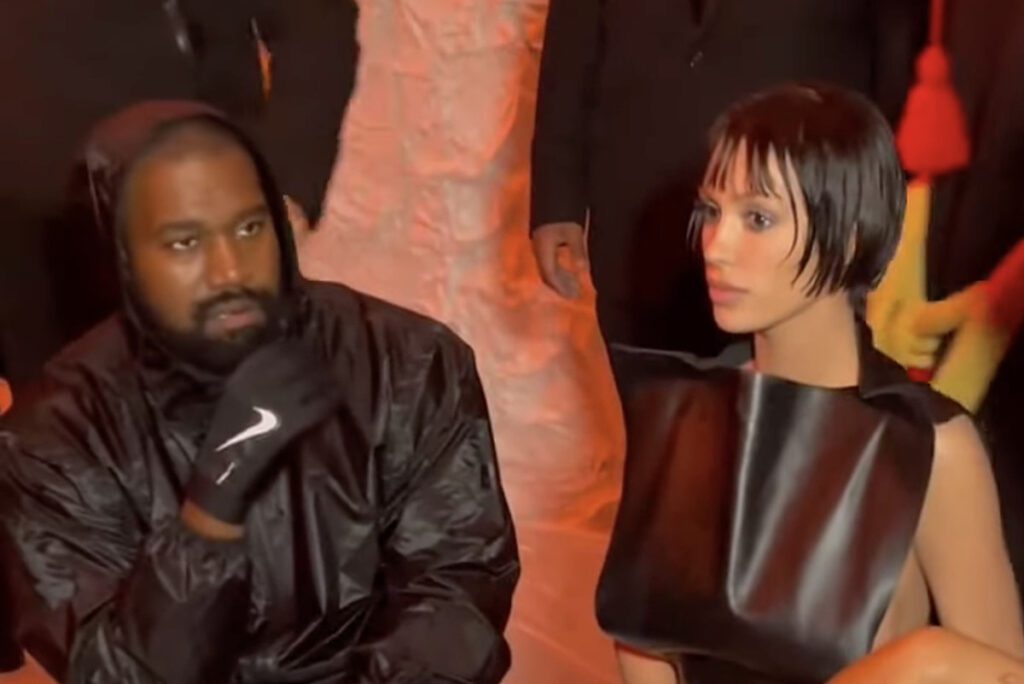Early in March came the sad news that the Bottle Rockets were hanging it up. The quartet’s lead singer and chief songwriter, Brian Henneman, was staring at the borderline of a 60th birthday later this year. After a year of hanging around the house and neighborhood during the pandemic, he decided that life at home suited him a lot better than riding a rock ’n’ roll touring van.
It’s hard to argue with that logic, especially if you’ve seen the van life up close and personal. So good for Brian. Too bad for the rest of us, though, because we’re losing one of the best rock ’n’ roll bands of the past 30 years.
Again and again, they pulled off an extremely difficult trick. They created the catchy hooks and bruising muscularity that their blue-collar friends craved to get some relief from their embattled lives. At the same time, the Bottle Rockets provided lyrics that reflected, even clarified the knotty paradoxes of those lives. Most blue-collar entertainment—whether TV, movies or music—offers only the first; just a small subset does both.
Henneman and drummer Mark Ortmann, the only two who were with the band from start to finish, began by describing their small hometown of Festus, Missouri, in these songs, even after they moved 35 miles north to St. Louis. The sound wove the influences of John Mellencamp’s heartland rock, Charlie Daniels’ Southern rock, and Uncle Tupelo’s alt-country. But Henneman penned better lyrics than any of those role models, borrowing Bruce Springsteen’s humor and ambition but ditching the New Jerseyite’s romanticism.
The result was a more hard-nosed brand of blue-collar-rock, less susceptible to the myth-making of the East Coast and the West, more attuned to the lives of those who had no ocean in sight, those who went back to work every Monday morning, whether the roads were icy in winter or blistering in summer. These were songs that roared in anger and erupted in laughter but never drifted off into reverie. No wonder John Fogerty hired the Bottle Rockets as the opening act for a tour.
Now they’re gone. We still have their recordings (I especially recommend The Bottle Rockets, The Brooklyn Side, South Broadway Athletic Club and Live in Heilbronn, Germany). Their brand of Midwestern, blue-collar rock ’n’ roll may be going the way of blues, bluegrass or reggae: shrinking to a marginalized niche genre. Michigan’s Bob Seger and Indiana’s Mellencamp once turned this music platinum, but now it mostly exists in small and medium-sized rock clubs.
But the genre’s artistic achievement continues to outpace its economic impact. In recent years, the North Mississippi Allstars, North Alabama’s Drive-By Truckers and their former member Jason Isbell have made some of the best rock ’n’ roll records to be had. Even The Hold Steady, the magnificent Brooklyn band, is led by transplanted Minnesotans. More recently, Tennessee’s Lucero, Nebraska’s Matthew Sweet and Oklahoma’s Saugeye have released impressive heartland-rock albums.
Except for New Jersey, New York, California, Illinois and Minnesota, the 18 states mentioned in this essay voted for Trump in 2016—and only Michigan and Georgia changed their minds in 2020. So these red-state rockers are fighting the good fight, operating as contrarians on their home turf, splashing their audiences with the cold water of realism after those listeners have swooned from the perfume of Fox News falsehoods. Such a hostile environment makes it harder for these bands to do their work, but it gives them something to push against and the result has been songs far earthier than those of their coastal colleagues.
Lucero photo courtesy of the band
You can hear the best qualities of heartland-rock in Lucero’s terrific new album, When You Found Me. The quintet recorded the 10 songs in their hometown studio, the Sam Phillips Recording Studio in Memphis. This successor to the original Sun Studio has hosted sessions by such red-state rockers as Louisiana’s Jerry Lee Lewis, Arkansas’ Johnny Cash and Levon Helm, and Texas’s Roy Orbison and Sam the Sham. Lucero now adds to that legacy.
When You Found Me is a haunted album. On the opening track, “Have You Lost Your Way?” a young girl is chased into an old Southern cemetery by a faceless horseman in the night. It’s as if a Confederate general rode off his pedestal and became a Nazgul from The Lord of the Rings. As scary as lead singer Ben Nichols’ storytelling is, it’s the jittery riff of his guitar and Brian Venable’s slide-guitar fills that are really creepy. On the next song, “Outrun the Moon,” another young girl is also on the run, fleeing a mean step-father, a smoky barroom and a galloping riff of distorted guitar; “her only plan is getting somewhere else.”
In “Coffin Nails,” the narrator “moved off the family farm in 1954,” the year Johnny Cash moved to Memphis from Arkansas and first auditioned for Phillips. Nichols’ narrator is a Vietnam veteran who brought home a burden that only added to the baggage he’d left at home. Rick Steff’s quiet, spooky piano provides the story’s midnight mist.
What is the nature of this weight that the children of Middle America carry on their backs? “It’s whiskey and religion,” Nichols sings over a country-rock thump. “It’s guilty as a dog. It’s the wolves outside your kitchen.” What scene could capture the paradox of that landscape’s pain and beauty? This song’s story of a man getting thrown out a bar and landing in the gravel parking lot, only to see a white-tailed deer leap into the nearby wood.
Nichols has one of those gravelly rock ’n’ roll voices that seems to rub against the needs of the melody, helping it to convey both longing and frustration. There’s plenty of both in these songs. The tension in the verses is expertly created by a rhythm section that has had two decades together, and the release is provided by the chorus hooks, especially those as catchy as the ones on “Outrun the Moon” and “Back in Ohio.”
And the lyrics offer some hope that a romantic partner might supply some shelter in the storm. In “All My Life,” the narrator leaves behind “the river mud” of Memphis and “traveled north.” But he carries his hometown—both its desolation and consolation—inside him wherever he goes. And soon or later, the heartland exerts its gravity on its wayward children and calls them back. “Sing me a wayward song,” Nichols sings over shivering, lingering guitar chords, “and I will follow your voice home.”
Matthew Sweet grew up in Lincoln, Nebraska, but he broke into the music business by befriending R.E.M. during his college years in Georgia and working with Fleetwood Mac’s producer in California. For a while he thrived as a power-pop hero, largely because he could build choruses worthy of his favorite bands—the Byrds and the Beach Boys—atop the sleek New Wave sound of the day. But in 2014, he heard the siren call that Nichols sings of and moved back to Nebraska. His third solo album since moving back is Catspaw, which confirms that his gift for pop hooks is undiminished.
Working from his home studio in Omaha, Sweet handled all the instruments and vocals except for the drums, which are provided by Ric Menck. The album lacks the Bottle Rockets’ and Lucero’s lyrics of blue-collar angst. Instead Sweet works within another Midwestern tradition: the power-pop of Michigan’s Romantics, Ohio’s Raspberries, Tennessee’s Big Star and Illinois’ Cheap Trick and the Shoes.
It’s no accident that power-pop was dominated by these Midwestern bands. For Southern California bands such as the Byrds and Beach Boys, sun-drenched transcendence seemed a birthright. But for bands who spent four months a year in wintry gloom and whose friends and family often worked in factories and farms, such grace could only be the product of struggle. As a result every song became a morality tale of noisy electric guitars clashing and crashing until they resolved into glorious chorus hooks. For these mini-dramas to work, you had to have both: the hellish guitar riffs and the heavenly vocal anthems.
Sweet has always had both. The album opens with the stomping hard-rock power chords of “Blown Away.” On the chorus, though, Sweet’s honeyed tenor, backed by his own multi-tracked “ahs,” rises above the amplifier noise to declare, “I can’t stay.” The album ends with “Parade of Lights,” which imagines that the Milky Way arching across the big Nebraska sky is a row of airport landing lights where he might touch down in his dreams. Over the psychedelic guitar noodling, though, he admits all dreams lead “right back to where you’ve been.”
The strangled, squirming guitars at the beginning of “Come Home” embody the weariness and loneliness that make it hard for the narrator to “drag myself out of the bed.” But when he does get dressed for the day and leaves the house, “face into the wind,” he’s braced by the hope of his partner returning home. That chorus turns into a duet between the tenor voice and lead guitar, both rising and falling in elegant lines over the punchy rhythm guitar. On “Drifting,” he invites the listener to “follow me into night … back into day.” The journey travels through minor-key, jangly guitars into giddy vocal harmonies, with Sweet singing all the parts himself.
Putting their own spin on Midwestern rock, as Tulsa bands always do, is Oklahoma’s Saugeye. This quartet is named after lead singer Jared Tyler’s favorite fish to catch and eat, a local hybrid of sauger and walleye. Tyler had sung on two different albums by Tulsa’s platinum country-rock act the Tractors, whose bassist was Casey Van Beek, also a member of Saugeye. Drummer Jake Lynn is also a member of the Red Dirt act Jason Boland & the Stragglers, while second guitarist Seth Lee Jones is a fixture of the Tulsa scene.
Unsurprisingly, the music reflects the slippery, slinky groove that made the music of Tulsans such as Leon Russell and J.J. Cale so distinctive. What’s unexpected is how close to that high standard these lesser known musicians come. They not only capture that relaxed flow that made Cale’s records so addictive, but they also some up with songs that supply stories and tunes worthy of that infectious pulse. Tyler wrote or co-wrote six of the 11 tracks, and two more were written by local Tulsa legends Dixie Michell and Brandon Jenkins.
For years, Tyler sang and played dobro and guitar behind country/folk cult figure Malcolm Holcombe, and two of Holcombe’s compositions are also here. Bill Withers’ “Grandma’s Hands” is transformed into funky Tulsa groove, but Tyler adds his own grandmother song, “Dirt on Your Hands,” which boasts similarly compact and impactful songwriting. “Gwendolyn” is yet another tribute to small-town life, and the descriptions of fried fish, sweet potatoes and hambone atop the bouncy tune and slide-guitar fills are bound to make one’s mouth water.
But life in flyover country is not always that happy. The young woman described in “She Believes,” is part Baptist gringo and part pantheist Cherokee, a combination that has created a modern Trail of Tears, a trail that leads straight out of Oklahoma on a Greyhound bus. But maybe running away isn’t the solution. On “Another Lifetime,” Tyler sings of a lost girl looking for the truth in Nashville, only to realize “it ain’t coming down 18th Avenue.” On the opening track written by Holcombe, Tyler suggests that one might find that truth by “crossin’ my heart to the homeland.”
For decades, songwriters, screenwriters and novelists have been advising young artists and idealists to get the hell out of small-town America and head to the coasts. But if those people leave, how will life ever improve for the people left behind? How will the leavers ever find a place that really feels like home? Like Henneman, Nichols and Sweet, Tyler recognizes that someone has to make a stand for dreams and democracy in these red states, someone has to get some “dirt on your hands,” someone has to demonstrate that the grittiest of rock ’n’ roll guitars can eventually sing like birds.




